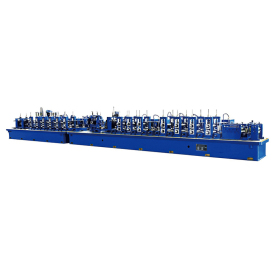[Industrial-Grade HSS Blade]Industrial-Grade HSS Blade: Unlocking Precision and Efficiency for Your Manufacturing Needs
News 2024-10-16
In today’s fast-paced manufacturing landscape, achieving precision and efficiency is paramount for maintaining a competitive edge. One essential tool that has proven to be a game-changer in various industrial applications is the industrial-grade High-Speed Steel (HSS) blade. Known for its robustness and ability to retain sharpness, the industrial-grade HSS blade has become a standard in metalworking and machining operations. This article will explore the advantages of HSS blades, their applications, and how they can significantly enhance productivity in various industries.

Industrial-Grade HSS Blade: Unlocking Precision and Efficiency for Your Manufacturing Needs

Industrial-Grade HSS Blade: Unlocking Precision and Efficiency for Your Manufacturing Needs
When it comes to manufacturing, productivity is crucial. HSS blades are designed to operate at higher speeds compared to traditional cutting tools. Their ability to cut through materials quickly enables manufacturers to increase their output, ultimately leading to reduced labor costs and enhanced profitability. Moreover, the long tool life that HSS blades provide means fewer replacements and less waste, contributing to a more sustainable operation.
In addition to efficiency and versatility, industrial-grade HSS blades offer superior surface finishes. The fine cutting edge, combined with their stability at high speeds, results in smooth and accurate cuts that require minimal finishing. This quality is particularly important in industries where precision is critical, such as aerospace, automotive, and medical device manufacturing. Superior surface finishes not only improve the aesthetic appeal of the finished product but also enhance its performance and longevity.
Choosing the right industrial-grade HSS blade involves considering various factors, such as the type of material being cut, the method of cutting, and the required finish. HSS blades come in various geometries and coatings, each designed to optimize performance for specific applications. For instance, some blades are coated with titanium nitride (TiN) or other materials to reduce friction and improve wear resistance, extending the lifespan of the cutting tool even further.
Moreover, the selection process doesn’t stop at the blade itself. Proper machine setup and operating parameters play a critical role in maximizing the performance of HSS blades. Factors such as spindle speed, feed rate, and coolant use should be optimized based on the blade specifications and the workpiece material. By aligning these elements, manufacturers can achieve the best possible results from their HSS blades.

Industrial-Grade HSS Blade: Unlocking Precision and Efficiency for Your Manufacturing Needs
In conclusion, the industrial-grade HSS blade is an indispensable tool in modern manufacturing environments. Its exceptional cutting capabilities, adaptability to various materials, and durability under high-speed conditions make it a valuable asset for operators and manufacturers alike. By investing in high-quality HSS blades and understanding their applications, businesses can significantly increase their productivity, improve the quality of their products, and maintain a competitive edge in an ever-evolving industry. Whether you are manufacturing precision components or bulk items, the advantages of industrial-grade HSS blades cannot be overlooked.
